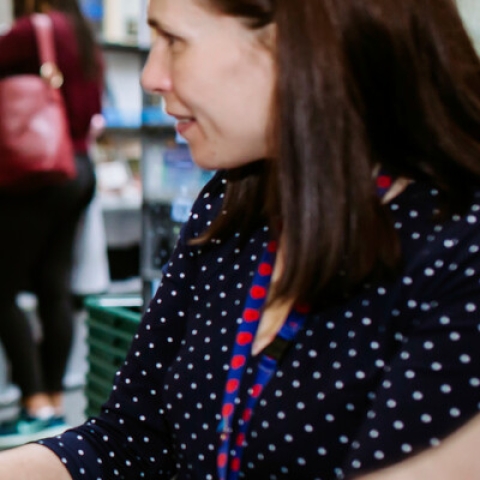
Most degrees involve group assignments. Learning to work effectively in a group will turn you into an experienced team member and an ideal applicant for future employers.
Overview
Working closely with others isn't always easy. It takes time for a group to become a team and successfully explore new research or reach new grades. Try to encourage social responsibility within your team and value punctuality, tact and respect as a group. Be supportive of other team members, offer constructive feedback where needed, and avoid criticism. Developing these habits early will help you build a successful and productive team.
Although leadership is an important skill, remember that one person taking charge can create tension and block ideas from the others. Individual contributions mean the potential for team-based research is greater than independent study, as long as the ideas are managed properly. Moving between independent and interdependent research is a part of teamwork and your tutor may consider this part of the marking criteria for your assessment.
Use your social and collaboration skills to get the best results from your group. You may need to adapt your skills to your specific group – don't be afraid to take some time figuring out what works for you and your team.
Group types and their effects
The scenarios below are based on Katzenbach and Smith’s ‘typology’ of group and team characteristics, and set good goals for improving social skills to help you to make a group of friends or strangers into a team.
| Description | How it feels | What it produces |
|---|---|---|
| You're with a group of your friends having a great time | Comfortable | Nothing academic |
| You're part of a group that can't identify its purpose or work out a way forward | Confusing | Very little |
| You're in a group of people with a clear direction, but you can't agree how to move forward | Frustrating | Very little |
| You're in a group of people with a clear direction, and with collective ‘ownership’ of plans to get there | Focused, but with a sense that you can all support each other more | A good outcome |
| Your group takes shared ownership of plans, has mutual interdependence and shared concern for each other's contributions | Focused, supported and with a desire to work with this team again | An excellent outcome, developing new personal skills and abilities |
Setting up a group
Group decision making can be as complicated as the individual personalities in the team. Overcoming personality differences and negative feelings to work towards a common goal is an opportunity to improve communication, innovation and creativity within your group. Establishing a positive attitude in your group will help your team members feel valued during your project and encourage them to contribute.
Your first meeting
Hosting a positive first meeting and setting up some team roles with your group can help minimalise the risks of working together, create a supportive atmosphere within your team and encourage individuals to stay engaged throughout your project.
Your first meeting should include:
- Everyone introduces themselves and summarises what they can bring to the team (including their learning and study role)
- Everyone agrees a set of ground rules, like the right to devils advocacy before final decisions, punctuality, majority voting in conflict resolution, who has the casting vote if there is a tie
- Read and discuss the assignment brief together
- Divide the brief into sub tasks
- Discuss and agree your team roles
- Nominate a team leader to hold onto meeting notes and manage team communication
- Plan ahead:
- Allocate team members to various tasks
- Agree to support each other
- Draw up time plan and deadlines for sub tasks
- Agree how you will communicate, for example a social media platform
- Confirm the date, time, and place of your next meeting
Ask these questions at the end of your meeting:
- Are we committed?
- Are our objectives clear?
- Have we planned all the tasks and subtasks we'll need?
- Is everyone happy with their role in the team?
This information is adapted from: Ramsay, Maier and Price (2010). Study skills for Business and Management Students. Harlow: Pearson.
Do you want help with group work?
We can help. Book your Academic Skills Unit (ASK) tutorial now at academicskills@port.ac.uk.
Enable University alerts
Turn on notifications for critical updates like closures, safety alerts, and urgent service disruptions.








